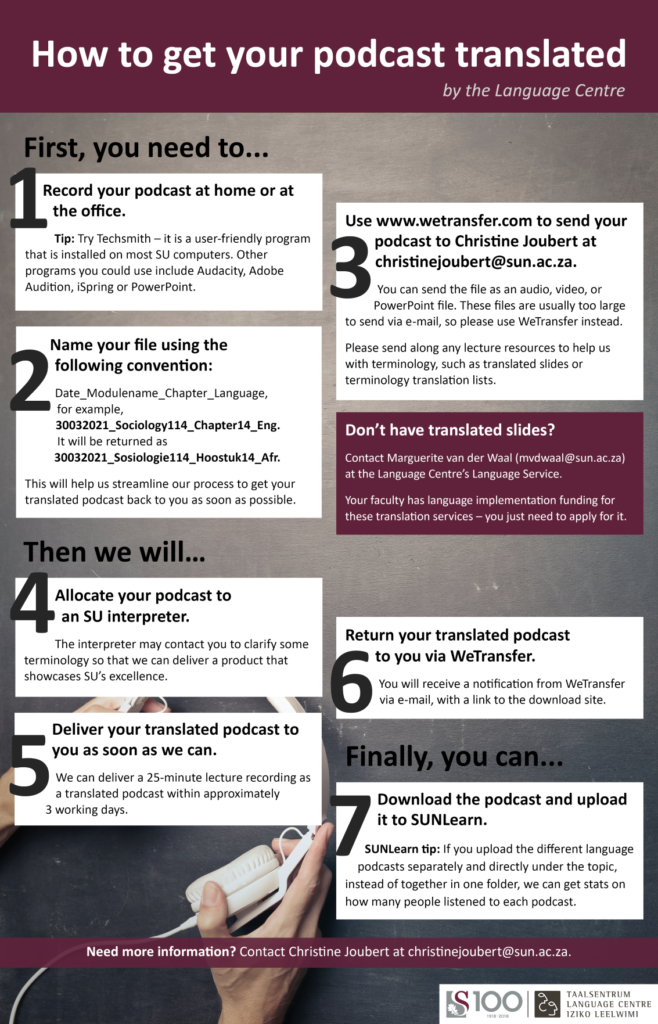Podcast translation to support multilingual online learning – examples
The SU Language Centre’s Interpreting Service offers a podcast translation service to lecturers wanting a professional and time-effective way of making online lecture content available in more than one language.
What is podcast translation?
Podcast translation in the SU educational context is the translation and re-recording of recorded lecture audio for online learning.
Podcast translation is carried out by a team of SU interpreters at their ‘home recording studios’. As educational interpreters at SU, we bring years of live lecture interpreting expertise to the process. The podcast translation service is available for audio and video recordings.
Here is an example of what podcast translation looks like:
Lecturer’s original podcast
Translated podcast
What does the podcast translation process entail?
Preparation
Before we can start translating a recorded lecture, we need to consult the appropriate resources to ensure that we are producing a podcast that reflects SU’s teaching excellence. The podcast is assigned to an interpreter who is familiar with the subject field. We first listen to the podcast and prepare translated terminology based on our existing terminology lists and translated slides sent to us by lecturers. Where we don’t have terminology lists or translated slides available, or where translations may be vague, we contact lecturers to confirm that we are using the preferred terminology to convey the concept the way they had intended.
Translation
Different interpreters approach the translation process differently. Some interpreters prefer transcribing the podcast, translating it and then recording it, which means even more time is spent on preparation. Other interpreters prefer interpreting the podcast as they would have done for a live lecture – although we still do some preparation in this case, this usually means that we need to spend more time on post-production.
Post-production
Whether we transcribe and translate podcasts, or interpret them like a live lecture, post-production on translated podcasts is a must to ensure that we are producing a quality product that conveys the intended message accurately, cohesively and completely.
We edit our audio to produce a coherent, natural-sounding message, and, where applicable, we synchronise the audio to the video so that slide timings, animations and laser pointer gestures line up with what is being said.
Quality control
Our project coordinator, Christine Joubert, checks every translated podcast for sound quality and completeness before it is returned to the lecturer.
The Interpreting Service Quality Control Portfolio does more in-depth assessments of podcasts on a quarterly basis – these assessments are much more rigorous. Marks are allocated based on assessment criteria such as the accuracy of the translation, the extent to which the translation conveys all the information in the original, how clearly the interpreter speaks, whether the vocabulary is suitable to the subject field, and the correctness of terminology. Our Quality Control Portfolio is keen to work with lecturers on the assessment of their podcast translations – if you’d like to get involved in the quality control process or if you’d like to learn more about what this entails, please contact Sanet de Jager or Risha Lötter.
Here’s how to get your recorded lecture translated
